Lanz Pierce has never been one to play by the rules. Discovered by Jimmy Iovine and signed to Interscope before she was 18, the New York–born rapper quickly built a reputation for sharp lyricism, fearless freestyles, and a career that included touring with Snoop Dogg, performing at festivals like Lollapalooza and SXSW, and working alongside icons like Nile Rodgers. But her story didn’t stop at the mic.
Today, Lanz is proving that hip-hop grit and entrepreneurial vision aren’t mutually exclusive – they’re two sides of the same creative coin. As the founder and CEO of Luminary Creative Agency, she has become a go-to force for building culture-shifting brands across tech, sports, media, and music, working with names like Marc Anthony, NE-YO and Snoop Dogg, as well as VC firms behind companies like Airbnb and Coinbase. At the same time, she’s making a powerful return to music with her new single “GET IT” – a razor-sharp, unapologetic anthem that takes on gender norms, social media culture, and the boxes women are too often told to fit into.
For Lanz, there’s no separation between the booth and the boardroom. Whether she’s launching a new venture or laying down a verse, her vision is the same: to challenge systems, amplify authenticity, and create movements that last. She sat down with Sheen Magazine to talk about balancing artistry and entrepreneurship, pushing back on industry norms, and why women in hip-hop and business should never shrink themselves to fit in.
Q. You’ve built a successful agency while continuing to create music. How do you balance the mindset of an entrepreneur with that of a recording artist?
For me, the two aren’t separate – they’re different expressions of the same energy. As an artist, you’re building worlds out of sound and story. As an entrepreneur, you’re doing the same thing with companies and brands. Creativity and strategy live in both lanes, so balancing them is really about channeling discipline into freedom: I give myself room to create, but I run both music and business with the same level of vision and operational rigor.
Q. Luminary works with everyone from celebrity-backed startups to venture capital firms – what’s one project that really shifted your perspective on what’s possible in business?
Working with music/AI platforms has been a game-changer. Seeing how technology can not only scale an artist’s reach but actually redefine creative collaboration pushed me to think bigger about what’s possible across industries. It reminded me that the future of business isn’t just about efficiency or margins – it’s about cultural relevance. That shift has shaped the way Luminary approaches every project: we’re not just building companies, we’re building cultural movements.
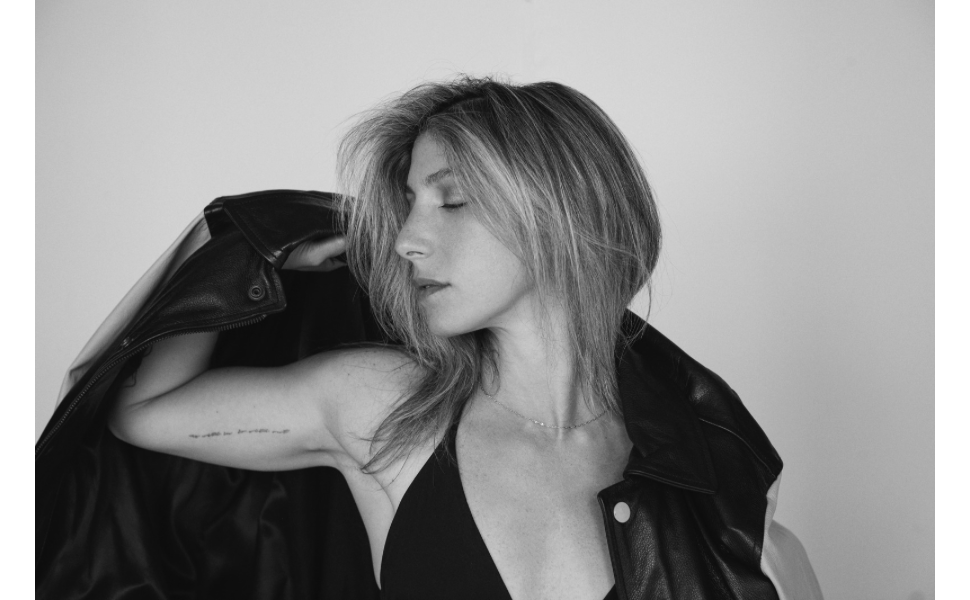
Q. Your latest single, “GET IT,” aims to challenge gender norms and social media culture. How does that message reflect what you’ve experienced as a woman in both the music industry and the business world?
Both spaces can be incredibly performative – there’s pressure to look a certain way, play a certain role, or shrink yourself to fit the mold. “GET IT” is my way of pushing back on that. I’ve lived the double standards: being questioned more in boardrooms, being underestimated in studios. But those same experiences fuel my work – they make me relentless about showing up fully, refusing to compromise, and helping other women claim their space without apology.
Q. What are some ways you’ve been able to leverage your music industry experience to give Luminary’s clients an edge in their own fields?
The music industry teaches you two critical things: how to build a brand that cuts through noise, and how to move culture. Those lessons transfer directly to business. I bring a storytelling lens, a deep network of cultural influencers, and an instinct for timing that comes from years of launching music into the world. Whether it’s a startup or a VC-backed company, I know how to position them so they don’t just market – they resonate.
Q. You’ve collaborated with icons like Snoop Dogg, NE-YO, and Nile Rodgers. How have those relationships shaped the way you lead and build brands today?
Working with legends teaches you the power of presence and consistency. These are people who’ve lasted decades because they know who they are and how to stay authentic while evolving. That’s how I approach brand building: you don’t chase trends, you build something timeless and flexible enough to adapt. And on a leadership level, it taught me the importance of collaboration – greatness is rarely solo, it’s about who you bring into the room.
Q. Women often face extra scrutiny in leadership roles, especially in male-dominated spaces like tech and hip-hop. What’s your approach to holding your ground and owning your space?
I walk in with clarity on my value. I’ve learned not to shrink to make anyone else comfortable – whether that’s on stage, in a studio, or in a boardroom. My approach is rooted in preparation, conviction, and presence. When you pair deep expertise with authenticity, it’s hard for anyone to shake you. And I think there’s power in not trying to mimic male leadership styles – owning a different perspective is often the competitive edge.
Q. From launching a music-tech company to designing for an electric race boat team, your portfolio is incredibly diverse. How do you decide which opportunities to say yes to?
I say yes where vision, culture, and innovation intersect. For me, it has to feel aligned with the future I want to help build. If an opportunity pushes boundaries, creates cultural impact, and gives me the ability to add unique value, I’m in. If it’s just business as usual, I’ll pass.
Q. Your path has included being signed to a major label, going independent, and now running your own company. What advice would you give to women who want to pivot or reinvent themselves?
Your past chapters are assets, not baggage. Every skill, every experience builds into the toolkit you’ll need for the next move. My advice: don’t wait for permission, and don’t be afraid of the pivot. Reinvention is about clarity of vision and the courage to back yourself, even when no one else fully sees it yet.
Q. In your view, what’s the next big shift we’ll see at the intersection of music, technology, and culture – and how are you preparing for it?
I think we’re moving into an era of co-creation at scale – where artists, fans, and AI are all collaborators in real time. The future won’t be about one-way content, it’ll be about participatory culture. I’m preparing by working with companies at that edge, building frameworks for authenticity and monetization so that when the shift hits full force, I – and my clients – are not just part of it, we’re leading it.
Q. Looking back, what’s one moment from your music career and one from your entrepreneurial journey that you’re most proud of – and why?
As an artist, I’ll never forget stepping onto stages in the underground mic scene – it was a different time and a true grind. You’d line up outside the club for hours just to get a slot, in that raw 8 Mile and Lyricist Lounge era where the crowds were unforgiving. There was no room for fear, no filters, and definitely no AI tools to polish your sound or image – it was you versus you. If the audience loved you, it was pure ecstasy; if they didn’t, they’d let you know in no uncertain terms. It was as real as it gets: not shade in the comments, but boos and confrontation that sent shivers up your spine.
That grind of the performance circuit was relentless, but it built stamina, grit, and sharpened my craft. Those lessons became cornerstones I still draw on today in how I project, lead, and move through life.
As an entrepreneur, I’m proud of founding Luminary and watching it grow from an idea into an agency that moves between startups, celebrity ventures, and VCs. Both moments remind me that what you build – whether a song or a company – can outlive you and change culture.
Stay connected with Lanz Pierce on all socials

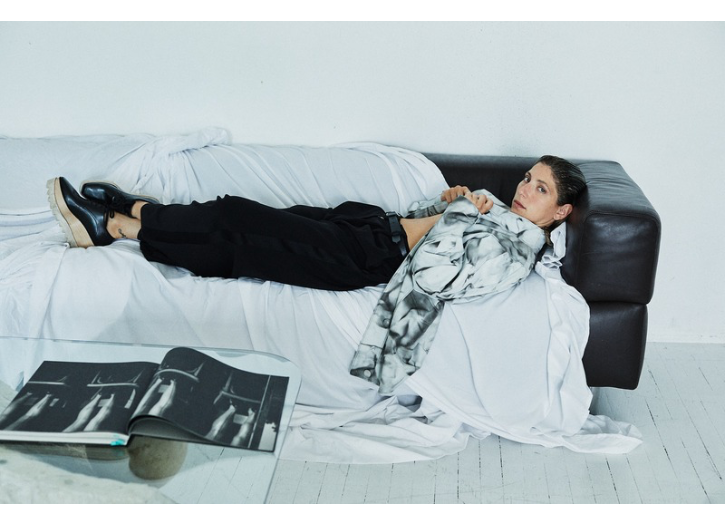
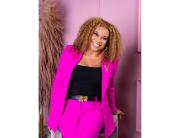
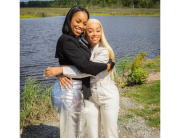

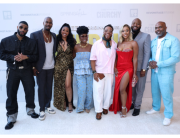
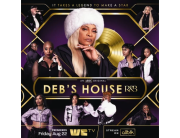
Add Comment
You must be logged in to post a comment.